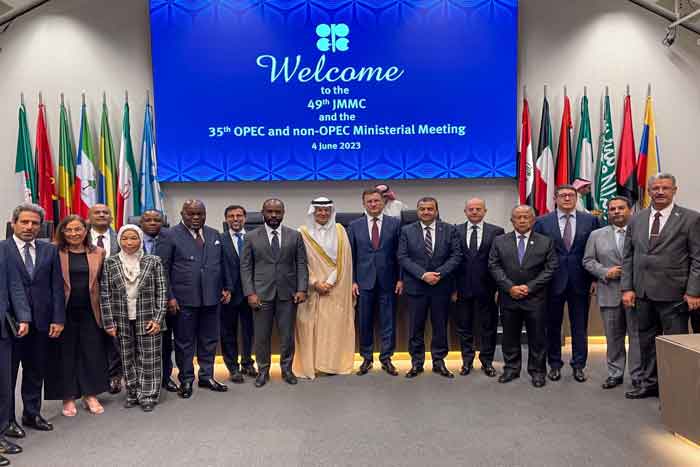
The members of the alliance of oil-exporting countries, OPEC+, held a meeting on Sunday where they adopted a strategy to boost the prices of black gold by cutting crude production.
Vienna.- In this meeting, in search of a common policy, the 13 members of the Organization of Petroleum Exporting Countries (OPEC), led by Saudi Arabia, and its 10 partners, led by Russia, participated.
Saudi Arabia has committed to further cuts in its crude production, marking the passage of the meeting of the alliance of oil-exporting countries OPEC+.
At the end of the meeting, the Saudi Minister of Energy, Abdel Aziz bin Salmán, indicated that his country is committed to a cut of an additional one million barrels per day (mbd) of its production, starting in July, but this reduction could be extended.
Russian Deputy Prime Minister in charge of Energy, Alexander Novak, mentioned as another important agreement the voluntary production cuts, adopted by nine countries of this pact for a total of 1.6 million barrels per day, which began to apply in May, will be extended until the end of 2024.
According to alliance sources, a key issue in the negotiation was the production base, because it is used to calculate the pumping quotas per country and thus configure a joint cut.
The United Arab Emirates, which defended higher production, managed to increase the base on which its pumping quota is calculated.
This meeting was held two months after several countries in this cartel announced a voluntary cut in their production quotas to boost prices, a decision that came into force in May, but which had a short-lived effect because it did not stop the fall in prices.
The meeting took place at the OPEC headquarters and began almost three hours later than expected, while the negotiation was arduous among the 23 countries responsible for 60 percent of world crude oil production.
Experts commented that the meeting took place in the current climate of uncertainty about the global economy, with several negative economic indicators for the demand for crude oil. (PL)